Syria. Part III. DetailsMapMay 7–12, 2008 The now-deceased Syrian president Hafez Assad once visited North Korea and was totally blown away by the monumental and pictorial possibilities of the cult of personality. Since then, the country has been decorated with thousands of compositions, steles, arches, pillars and murals depicting the great president. 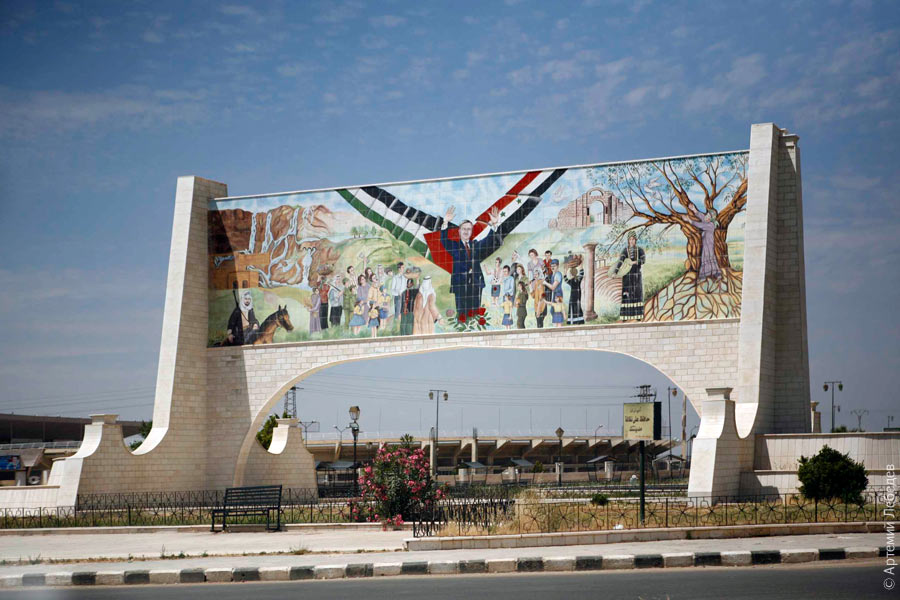 Modern Arabs feel very much at ease surrounded by portraits of their ruler (see my thoughts on this in the write-up on Kuwait). So when Hafez Assad died in 2000 and his son Bashar Assad took over, the new portraits fit perfectly into the old frames. 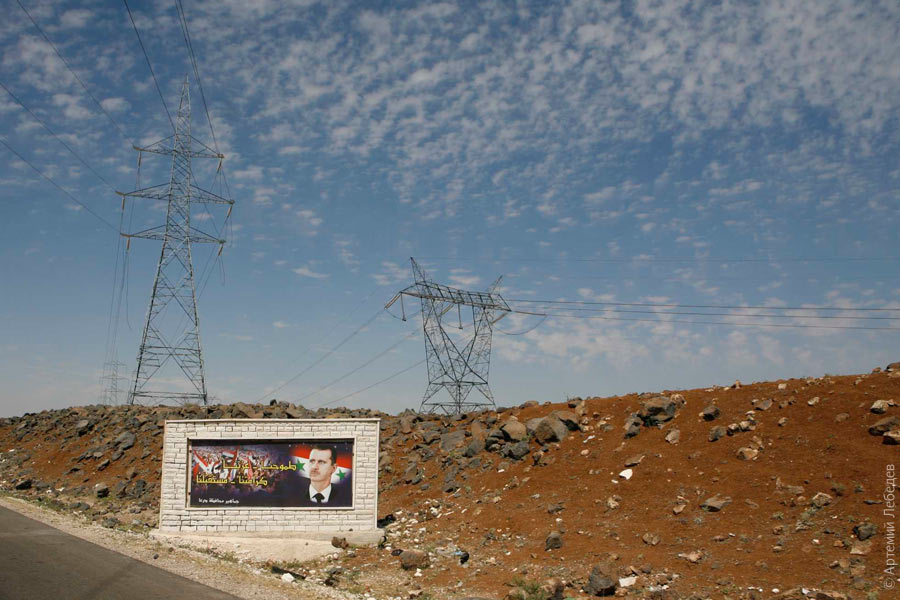 And the people’s love quickly followed suit. 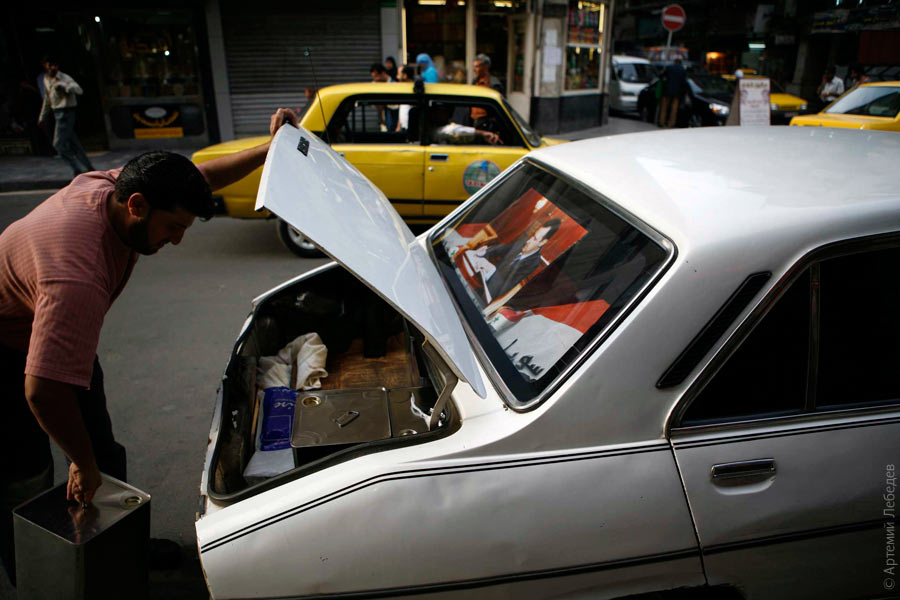 “Thank you,” “Thank you,” “Thank you,” “Thank you.” The entrance to a large hospital in Damascus. 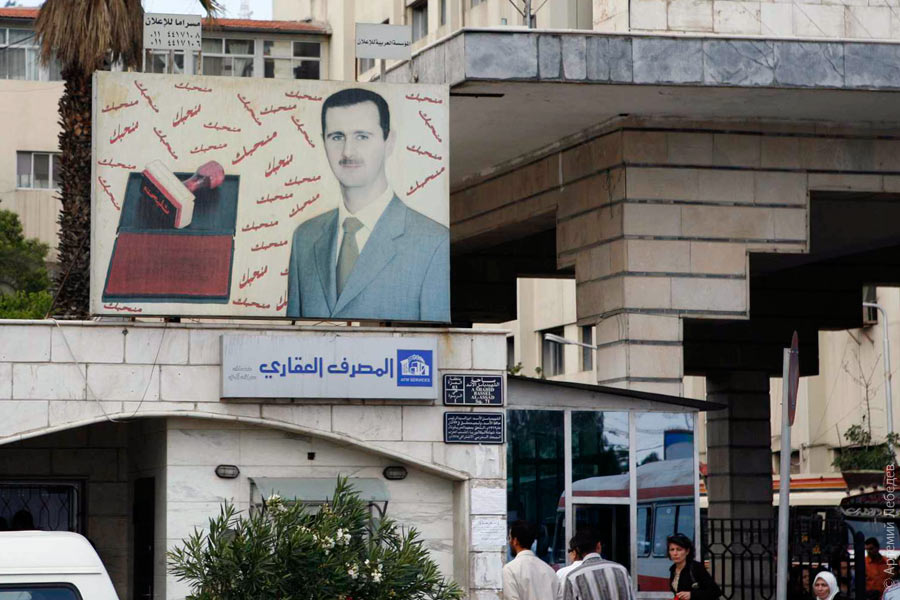 The ruins of an ancient oasis city, Palmyra, have survived here. This is a specimen of a pipe and a Roman toilet from that era. 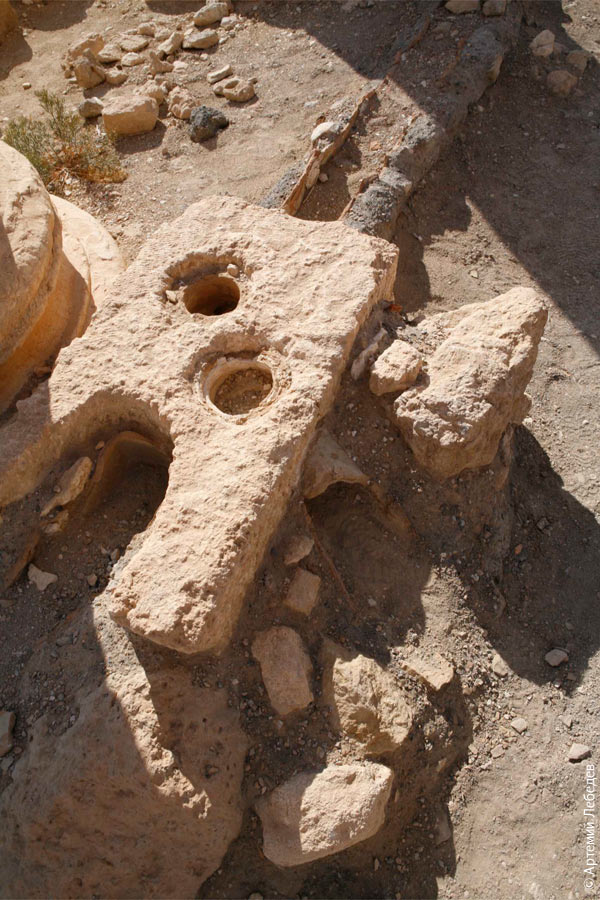 The inhabitants of the village of Maaloula have been speaking Aramaic since pre-Islamic times, and still speak it to this day. And the crosses here are three-dimensional (a month later, I’ll come across the same thing in Zurich, but on a pharmacy). Christian villages are actually not uncommon in Syria. 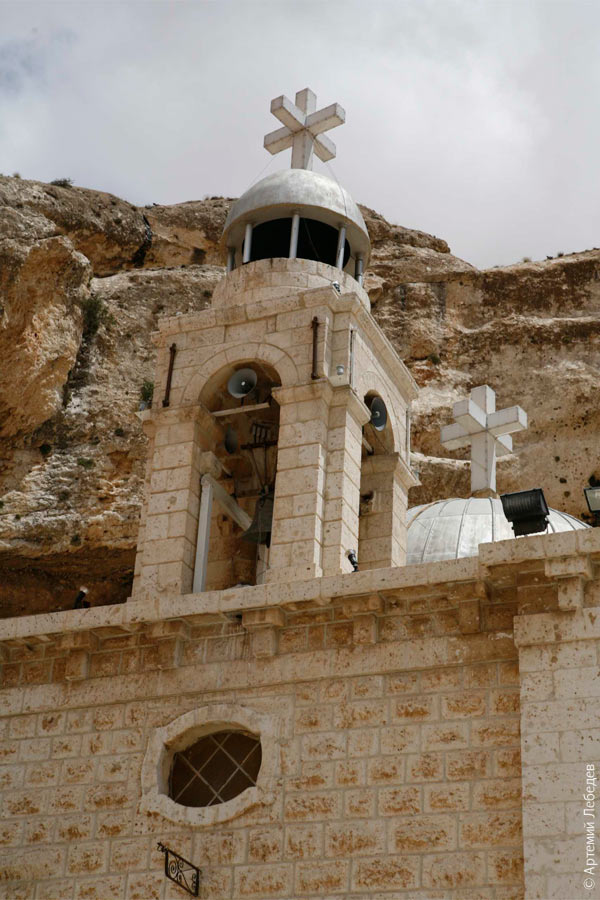 Inside Damascus’s Umayyad Mosque, which once used to be a Byzantine cathedral, is a small edifice with green windows to which Muslims come to pray. It contains the head of John the Baptist, who, as it turns out, is worshipped by Muslims as a prophet. Who would have thought? 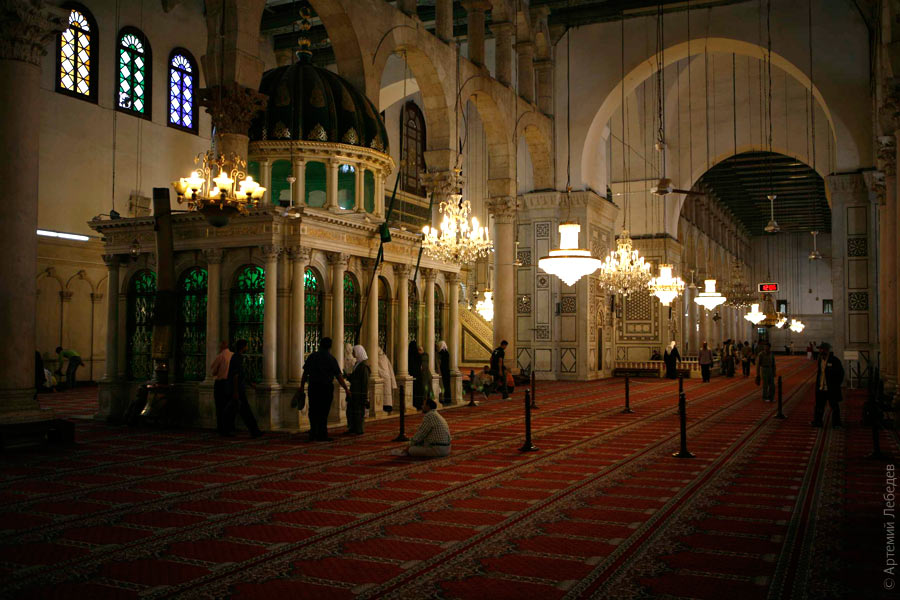 The Crusaders stayed put in Syria for several hundred years, establishing the impenetrable fortress Krak des Chevaliers with its Medieval-issue knight’s toilets. 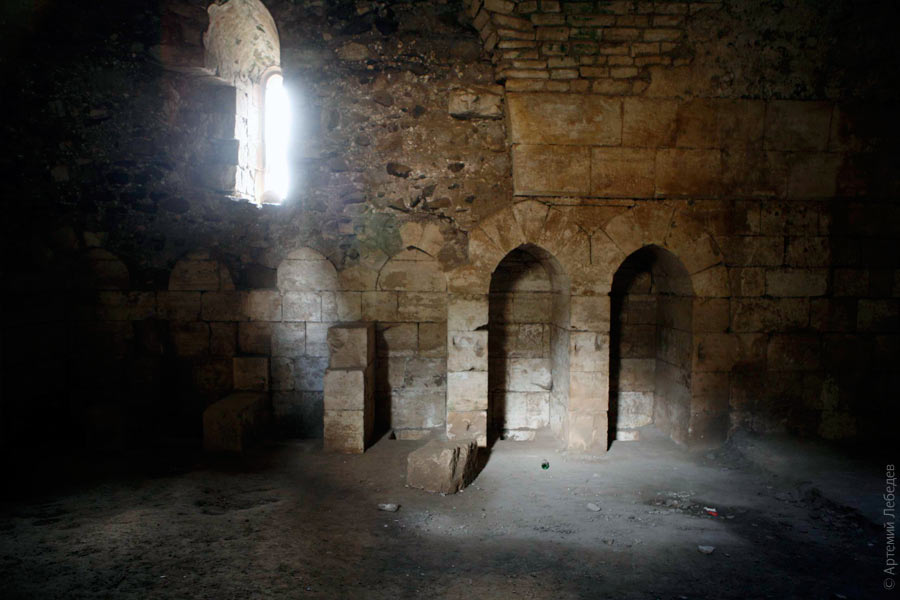 The style of alternating broad black and white stripes was adopted by Syrians from the Turks. Then again, I didn’t find any examples of this style in Turkey. 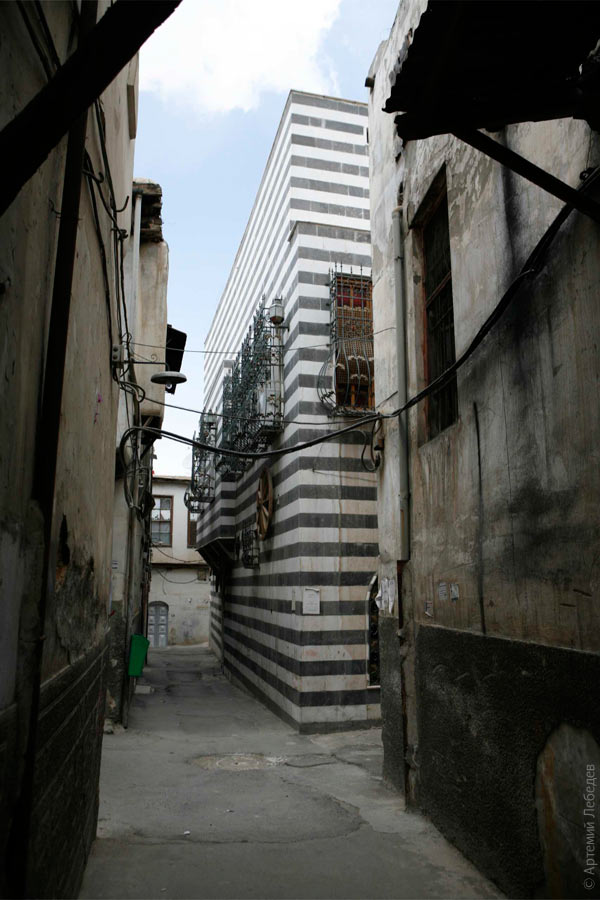 In the 20th century, the French left their mark here. 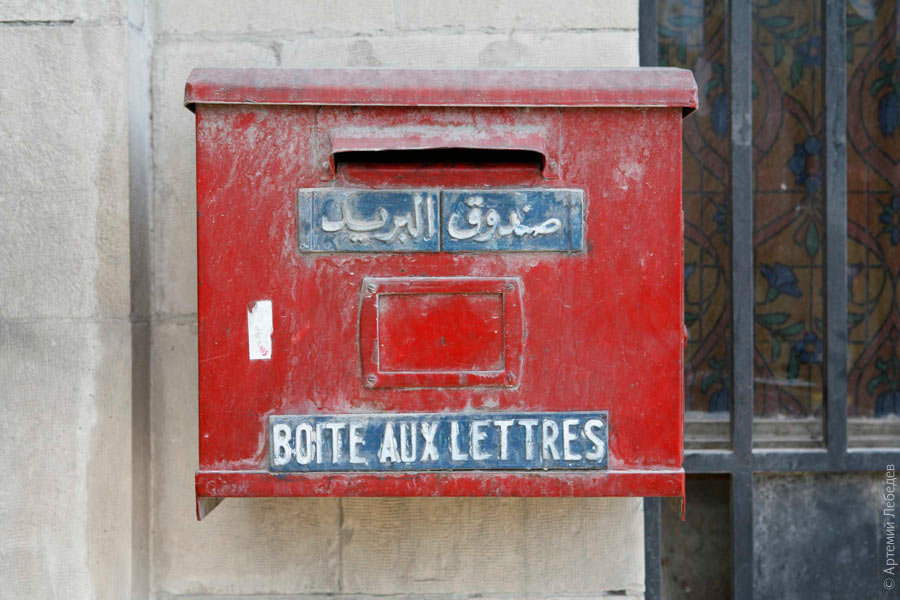 Military bases with Russian planes and tanks lie scattered across the endless expanse of Syrian desert. There are also lots of Zhiguli cars here, as well as our lovely forests in processed form. 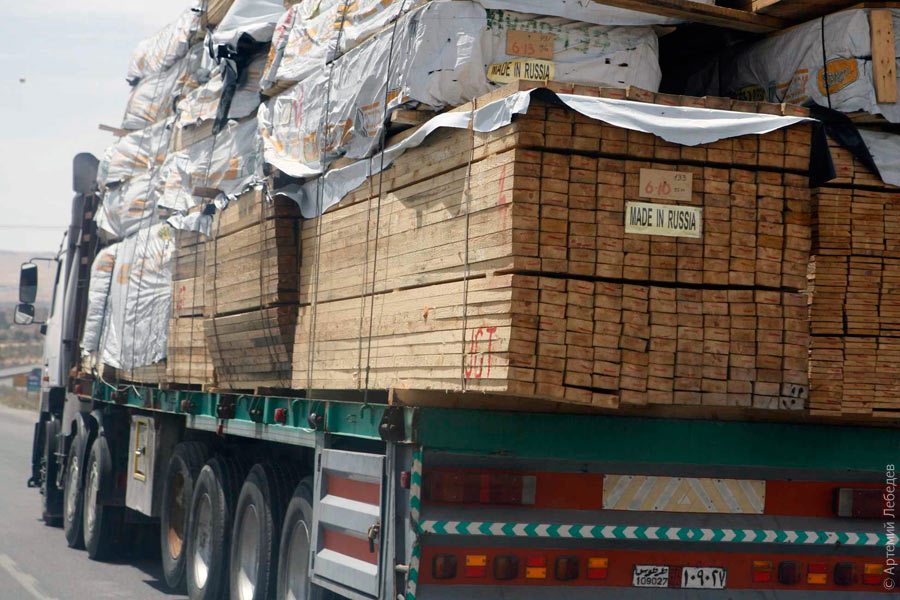 Today, Syrians lead their lives in the enjoyment of their own company. 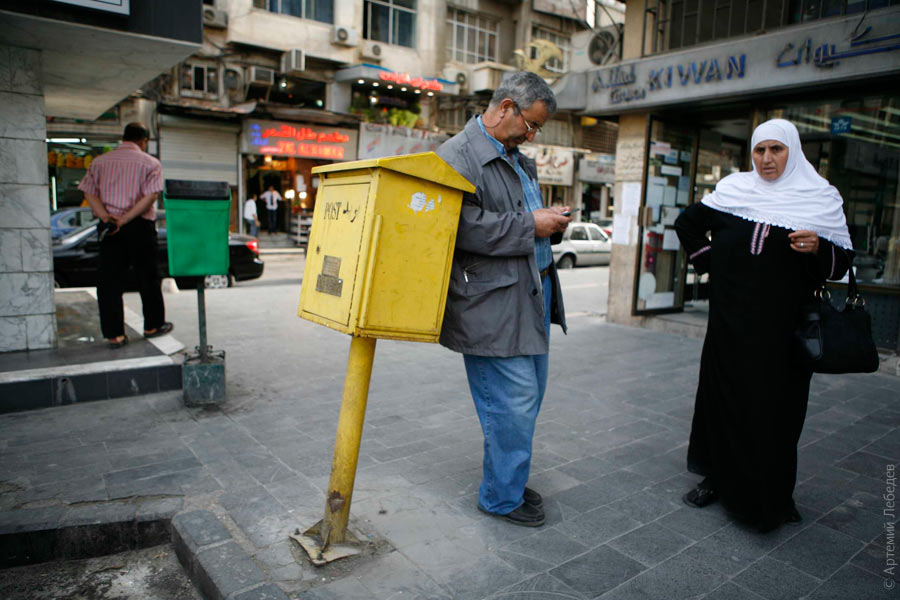 Syria is an incredibly pleasant country. It’s five times more interesting than Jordan. 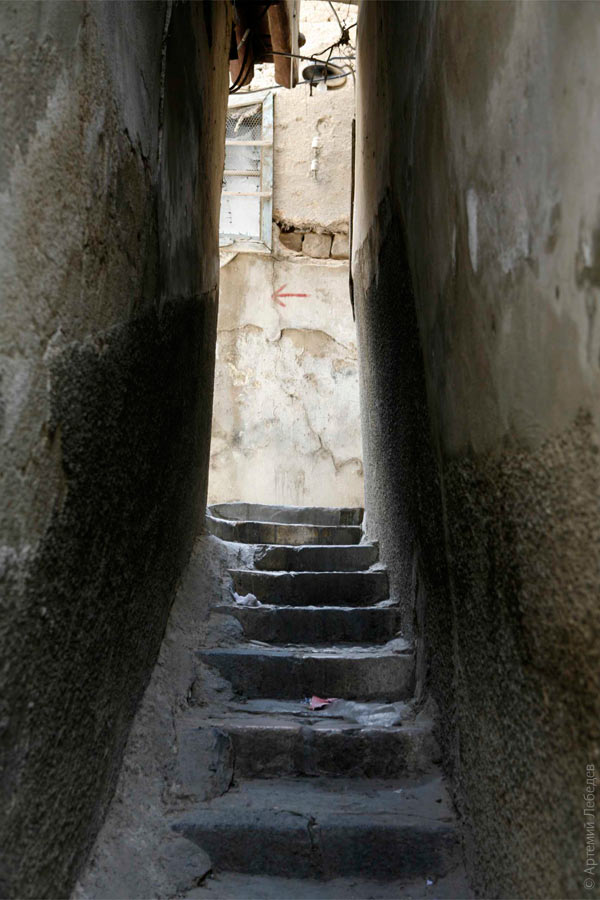 And the Old Town in Damascus is actually one of the most pleasant places on the whole continent in terms of atmosphere. 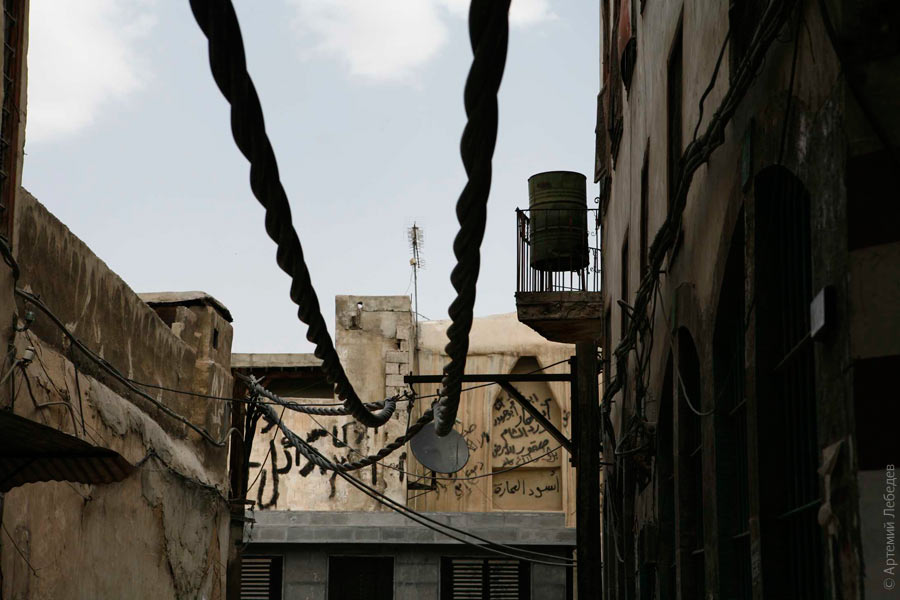 The houses here might appear unsightly, even poor. 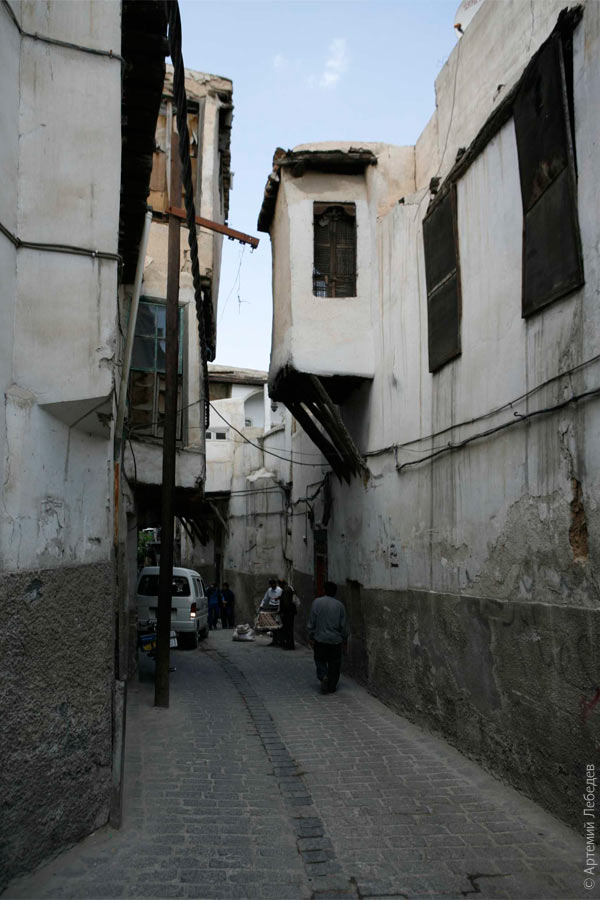 That’s all because of the Turks. Back in the day, in order not to attract the occupants’ attention, Damascenes became accustomed to avoiding public displays of wealth. 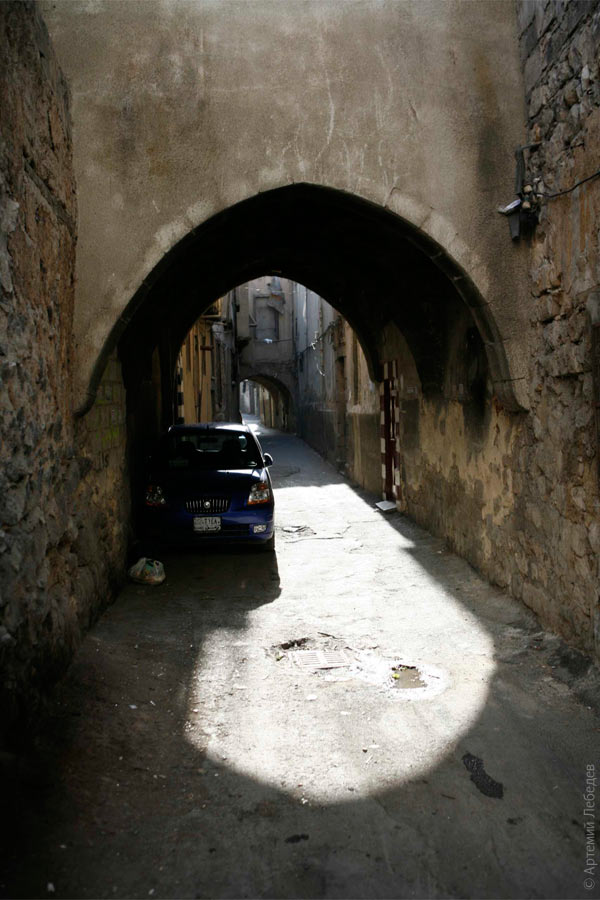 Immediately past the front door, you’ll find gardens, fountains and spacious rooms. Today, houses like these are being turned into restaurants and hotels. 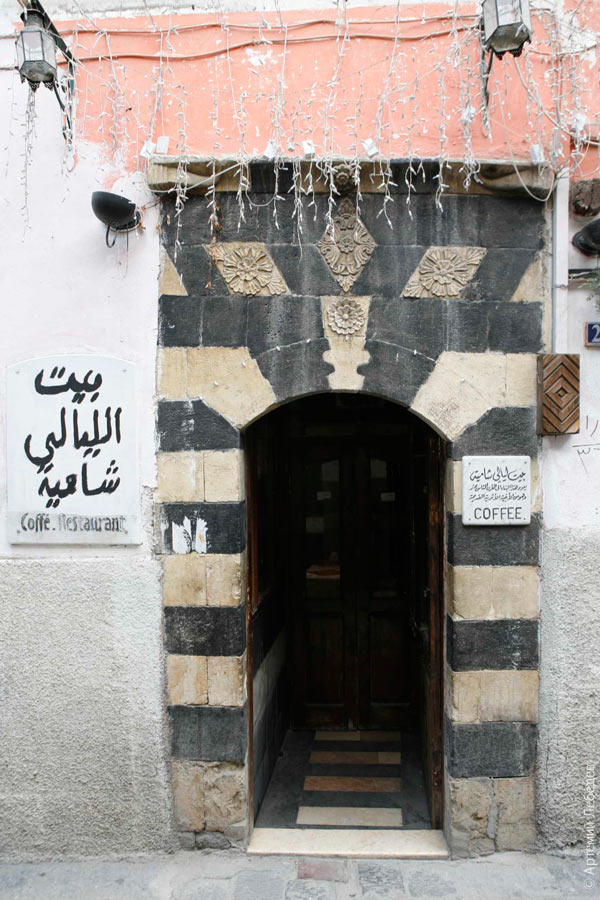 Syrians are a friendly, cheerful and hardworking people. Their work ethic can be judged by the fact that there are no homeless people here. The poor are shining shoes on every corner, earning their dinar honestly instead of begging. City streets are filled with an incredible number of craftsmen of every trade. There are kilometer-long rows of workshops that produce everything imaginable right at the bazaar. From making boilers to printing flyers, they do it all. The people’s friendliness can be judged by how a rural driver who didn’t speak a word of English helped me out in a tough spot. One day, towards evening, I set out from one village to another one that had Internet. Someone offered me a ride on the way there, and the owner of a computer shop let me use his Internet for free. On the way back, I made a wrong turn somewhere, and by that point it had gotten completely dark. Nothing but moonlight illuminating the road, mountains all around, no more house lights to be seen, and wolves had started howling all around me. It was rather unpleasant, to say the least. But then I happened upon the driver, who realized this white man was out of place. He drove me to his friend, who, unlike the driver, spoke a whole two words of English: “yes” and “no.” The challenge I faced was to somehow communicate the name and address of my hotel, neither of which I actually knew (it happens). They also wouldn’t take any money for driving me through the mountains for an hour, which is typical. Syrians indicate that something is good with five stars. They stick them on everything imaginable. The stars mean something between “VIP” and “#1.” 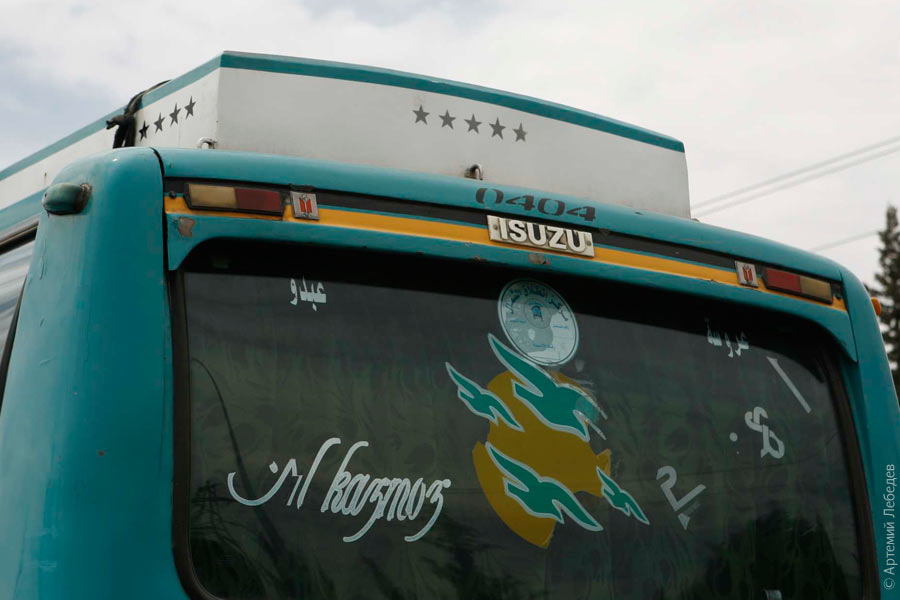 Looking at photos, one might conclude that the country is a total mess. 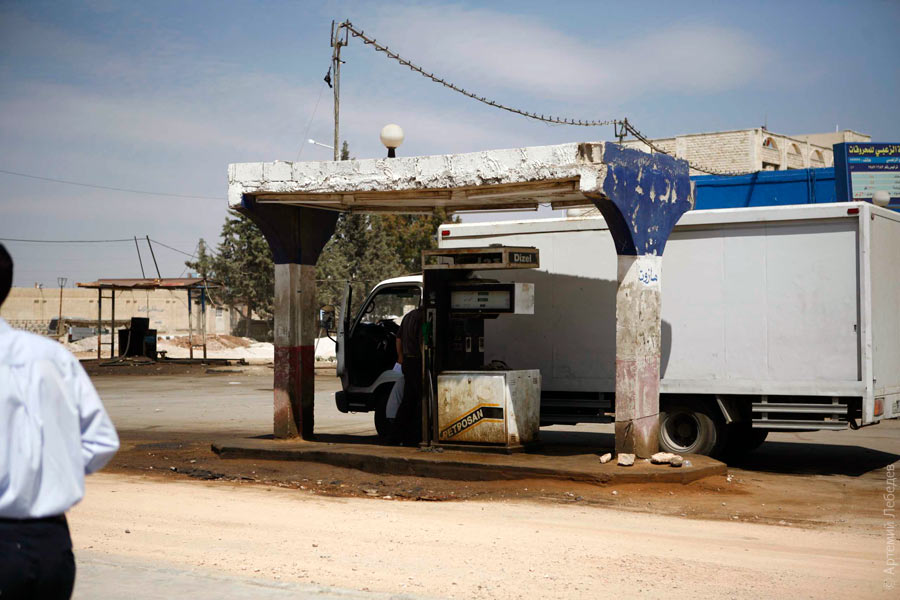 In reality, this mess is so natural and homey that you only notice it in photos. 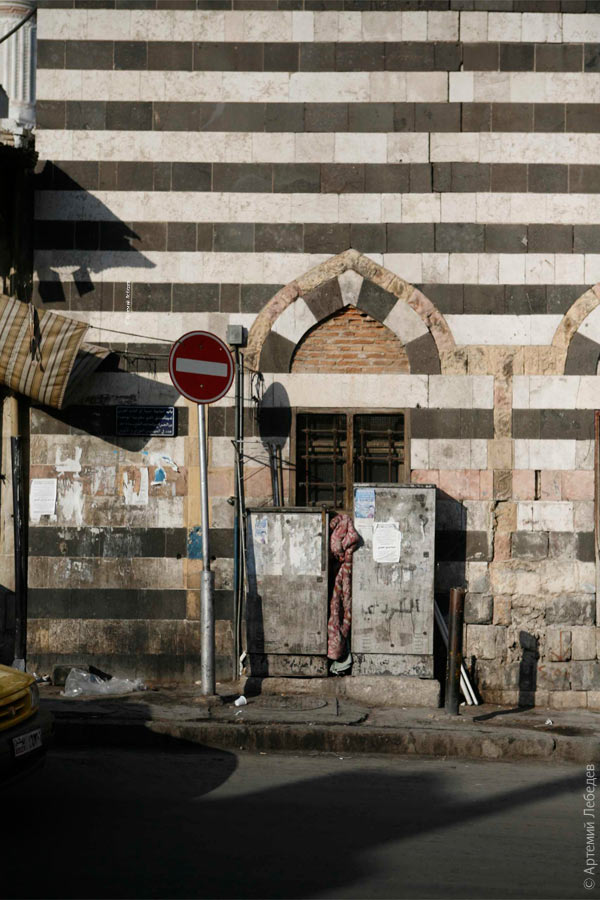 Phone booths. 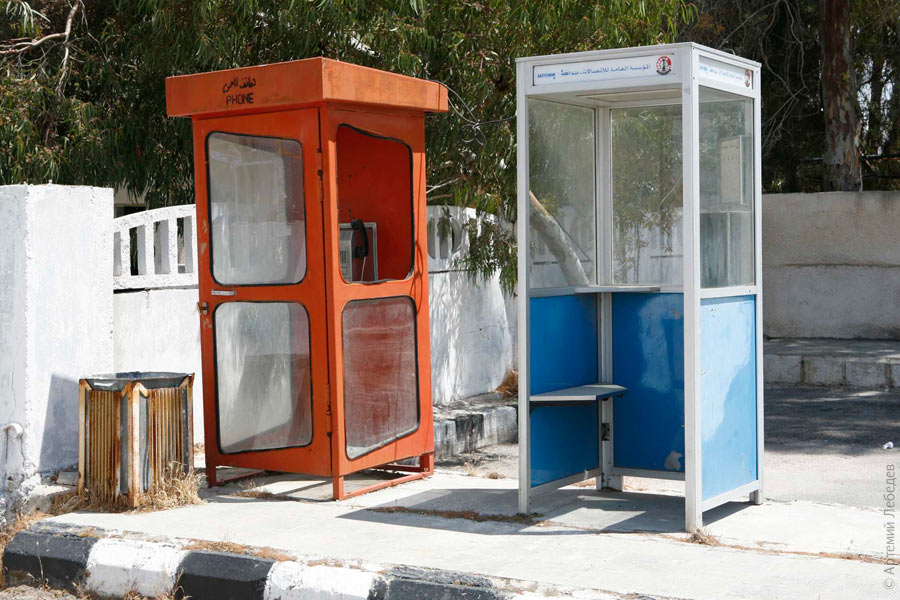 A traffic controller’s tower. 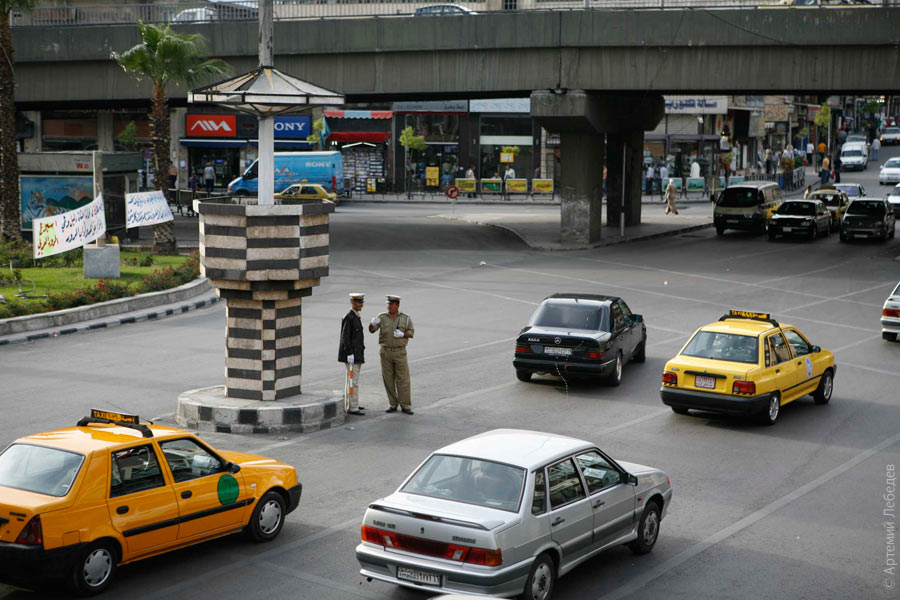 The beginning of a median strip. 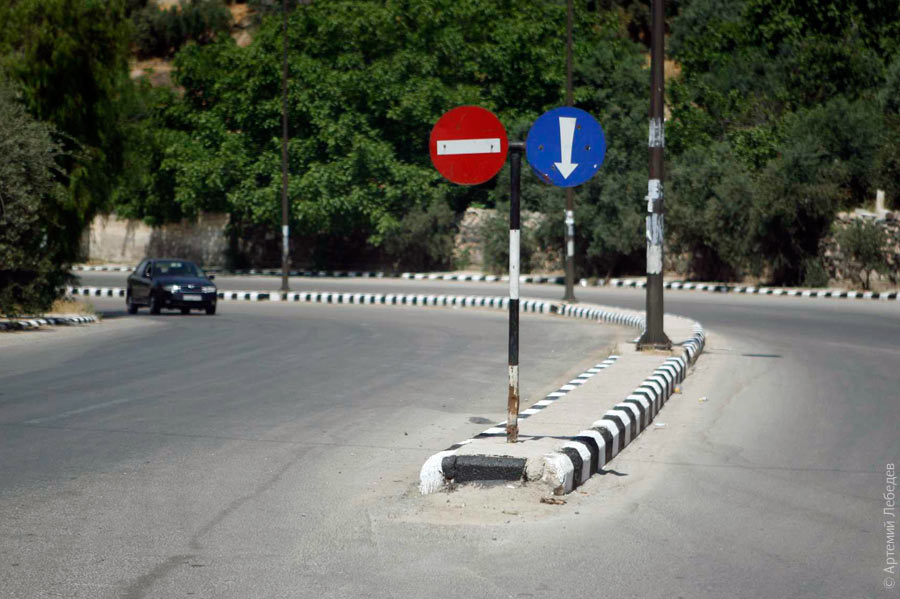 Truck tuning. 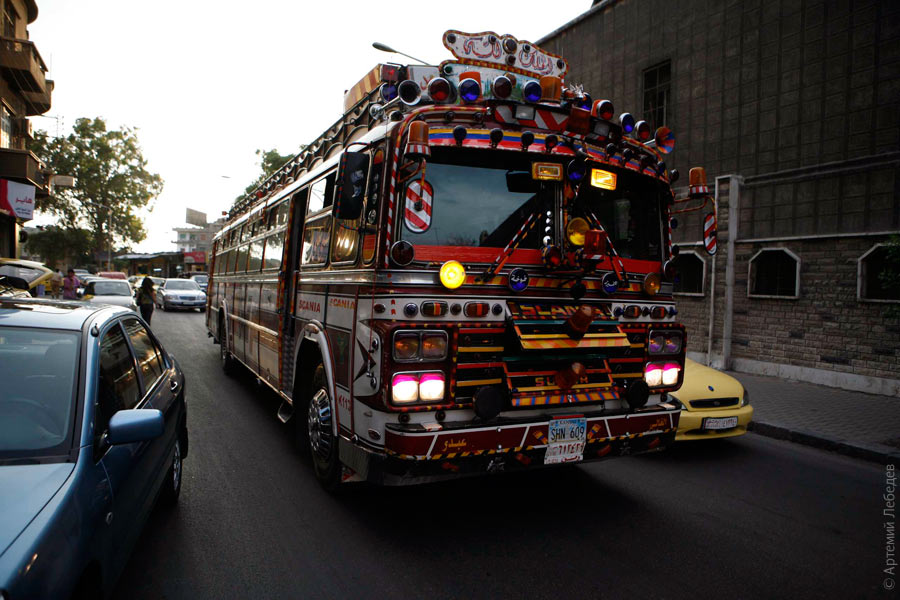 A sign of incredible graphical might that appears on traffic lights and reminds drivers to stop before the white line. 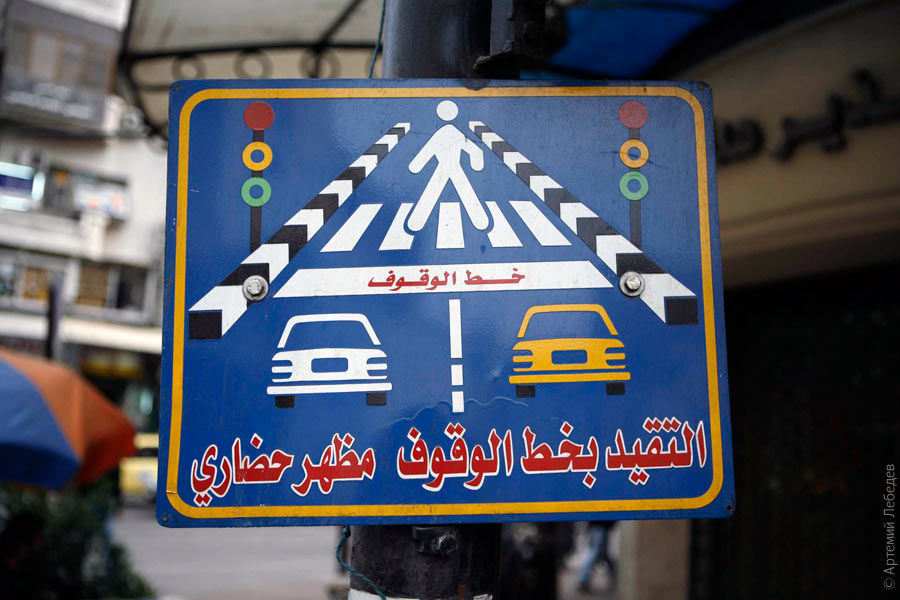 Damascus still has a strategic reserve of Peugeot 404s. 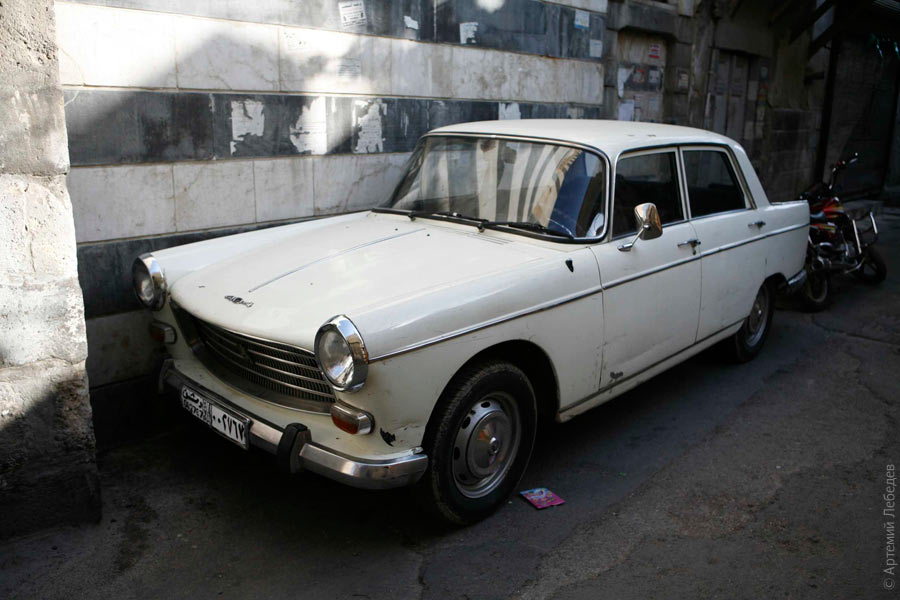 Old Mercedes, meanwhile, are kept in Palmyra. 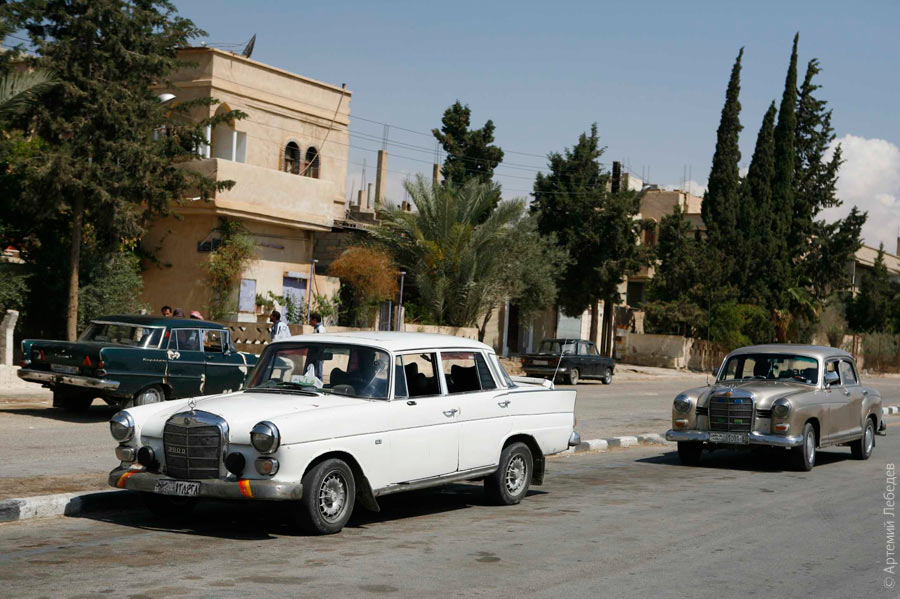 Lane markings, where they exist, are made of special plastic caps. 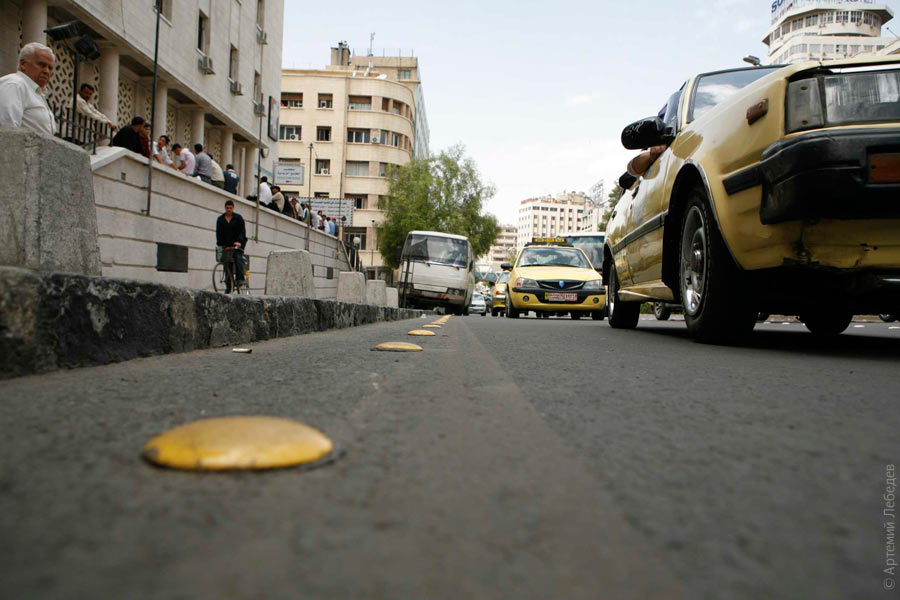 As readers might remember, Venezuelans use cubic centimeters to indicate liquid volume on containers. Syrians, meanwhile, can boast pharmaceutical precision on their labels. 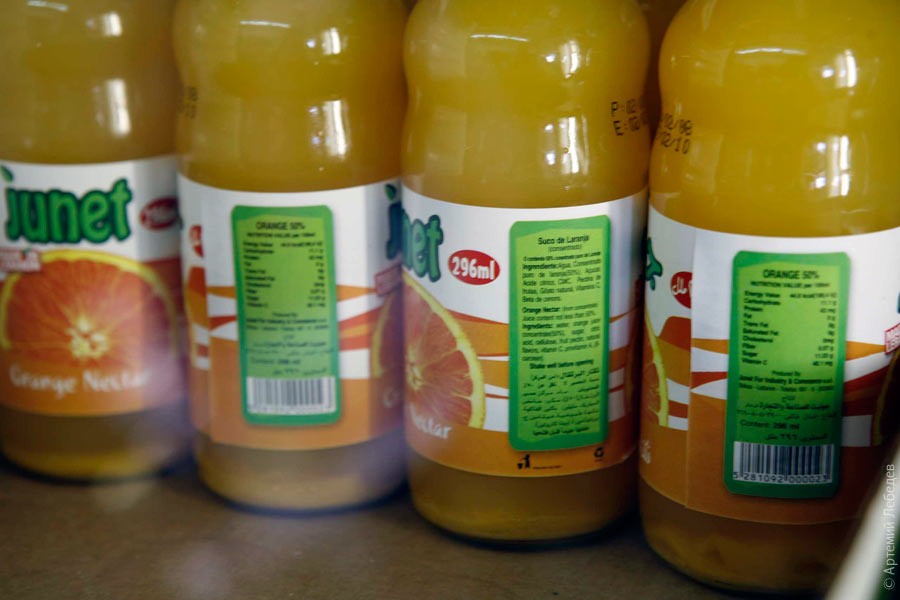 A century and a half ago, the Turks cut down almost all the Syrian forest for their railroad needs. Now the desert is being reforested. 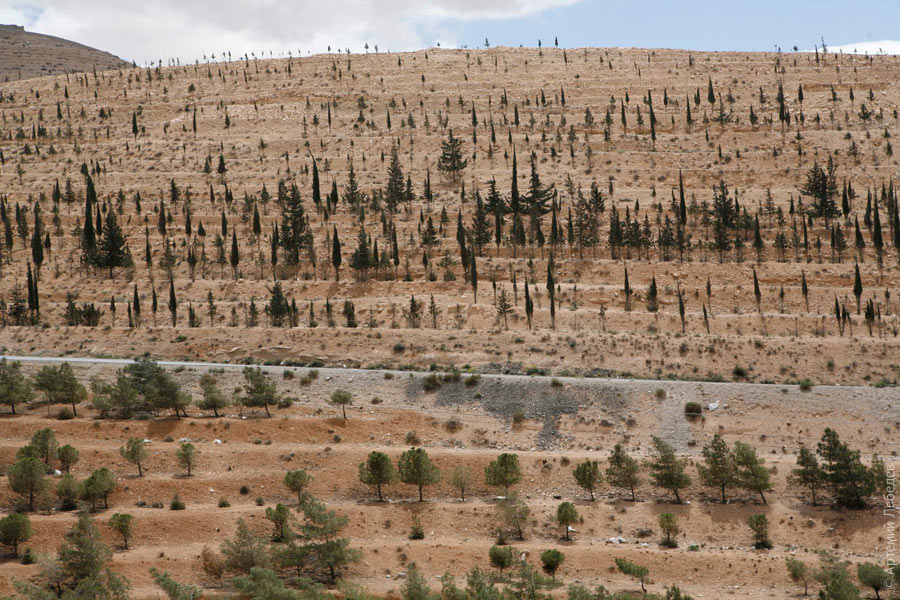 Then again, half of Syria consists of natural desert. 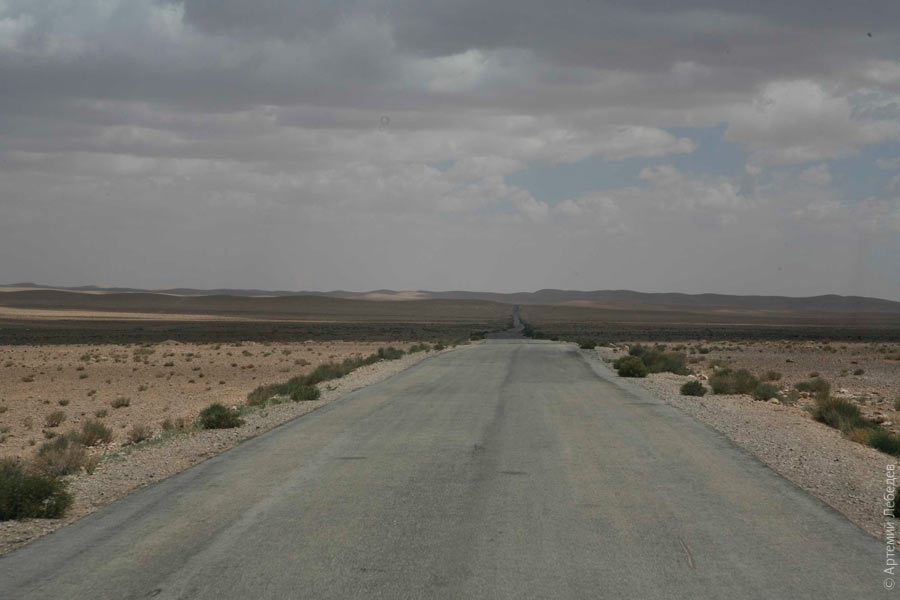 A typical scene in the center of the country. 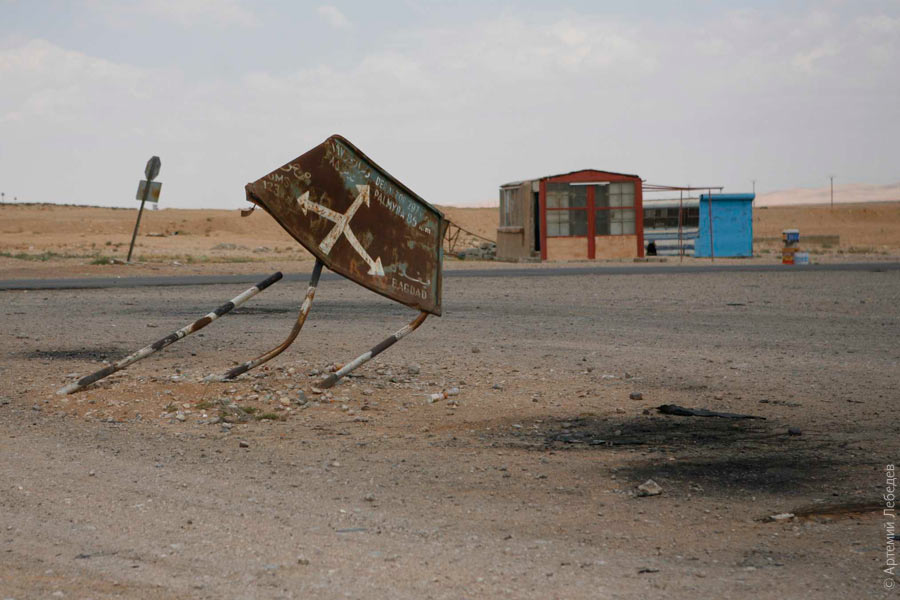 Traffic lights on the highway. 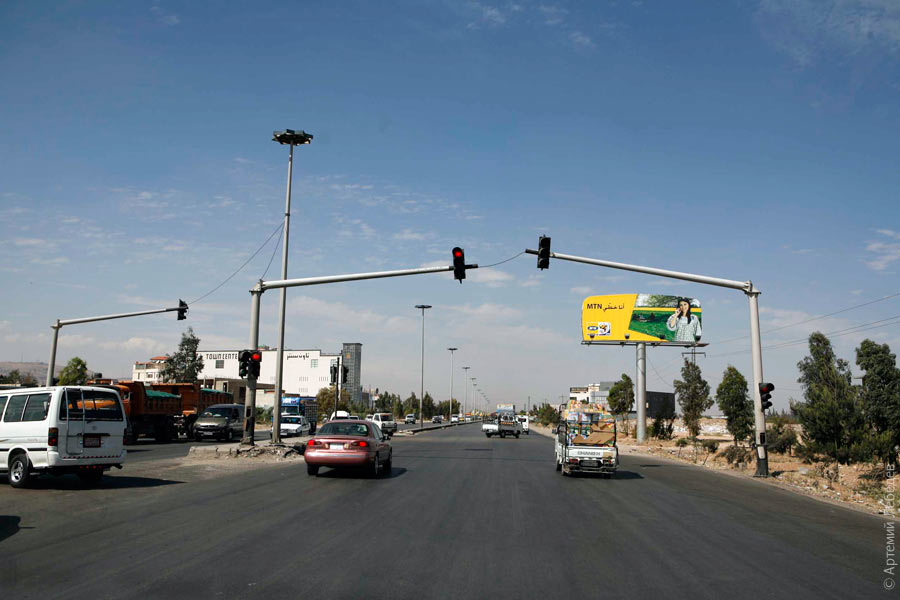 A unique black-and-white traffic light color scheme in some town near Homs. 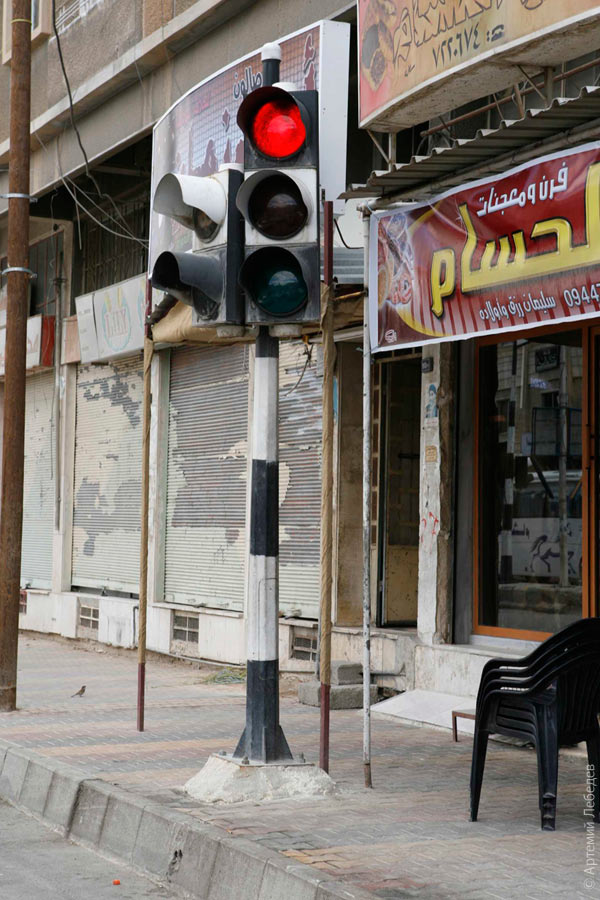 This Syrian-made traffic light, now out of service, testifies to the uniqueness and importance of Syrian culture. 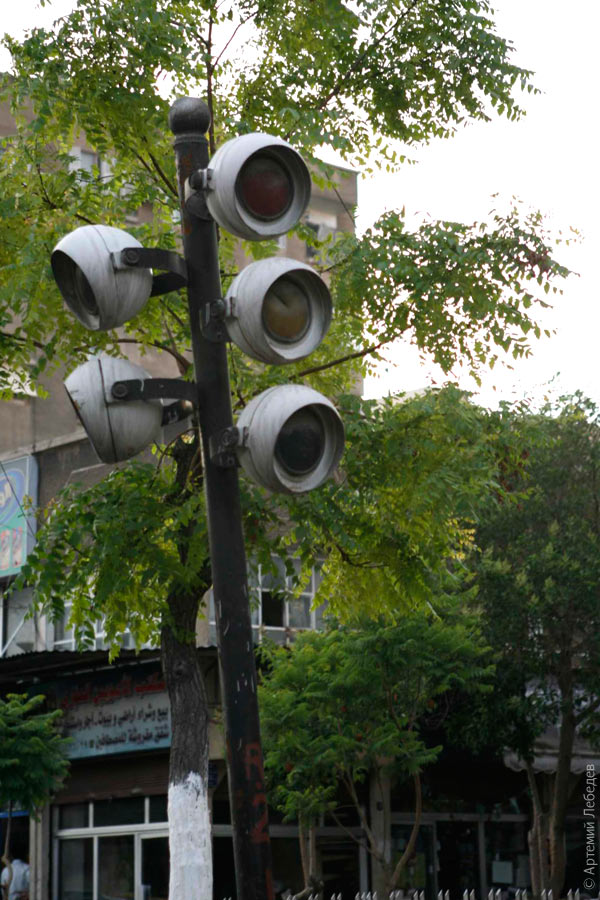 Half the women here wear jeans, by the way. 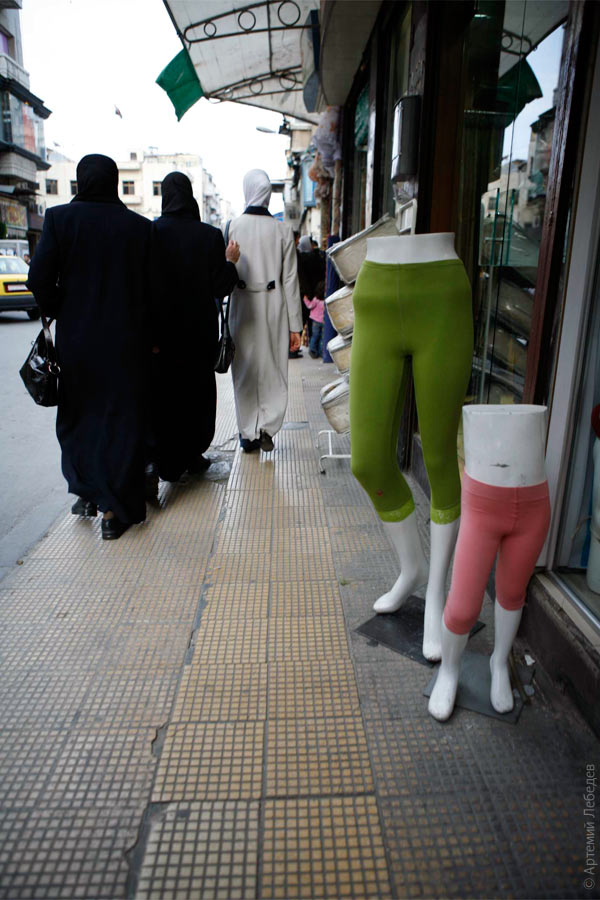 Also, everything in Syria is very tasty and incredibly cheap. On the eve of my departure, police cars with loudspeakers were driving around the city all day to announce that fines for failing to wear a seatbelt would enter into effect in two days. New rules are introduced in the span of a week here, not dragged out over six months like back in Russia. And until the two-day period has expired, highway patrol officers will be pulling over cars on rural roads to inform drivers about the new regulations and make sure everyone in the car buckles up. |